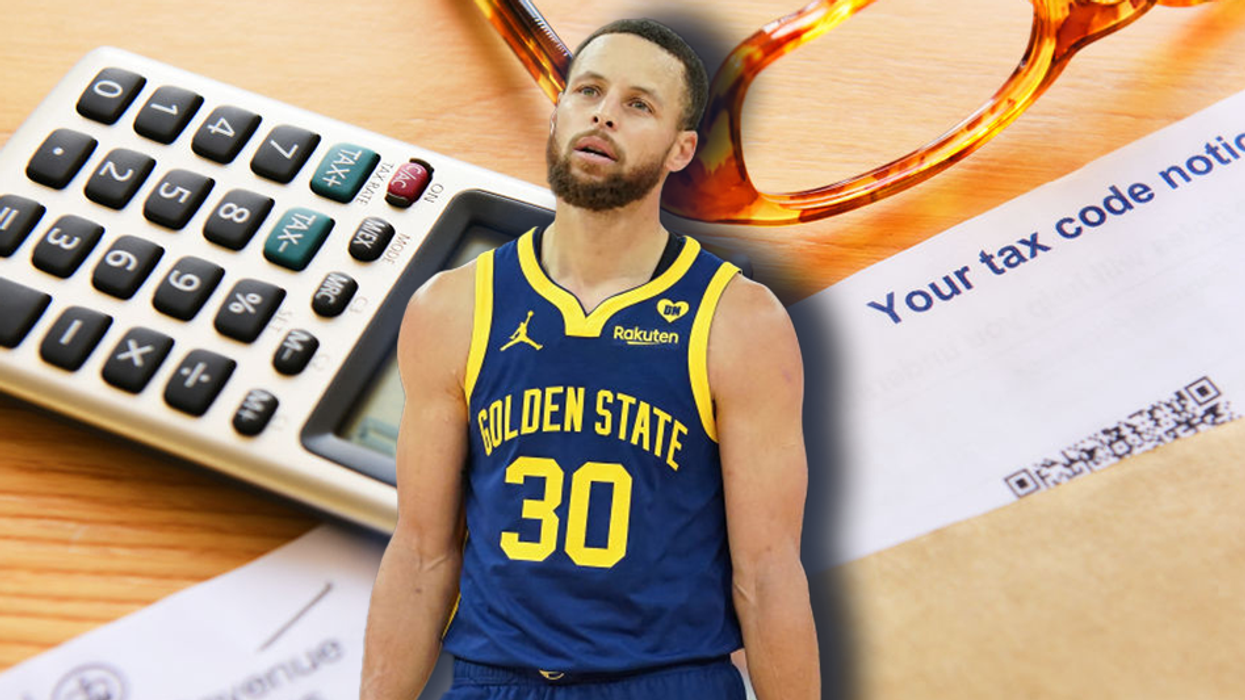'This is why taxes suck': The shocking reality of what star athletes pay in blue-state income taxes

Sports fan are taking notice of how much income tax athletes are paying and how it affects their decision of where to play.
After NBA superstar Steph Curry signed a two-year extension worth over $110 million, a sports investment analyst broke down how much money Curry stands to lose under California tax rates.
"This is why taxes suck," analyst Andrew Petcash wrote.
Petcash revealed that in 2023 alone, Curry lost $6.3 million due to California's 12.3% income tax rate. However, if income is over $1 million, both a 1% state mental health services tax and a 1.1% state payroll tax are also applied, according to the Tax Foundation.
'Just another thing you've got to contend with in negotiations.'
According to another graphic, Curry paid $4.1 million in California taxes in 2017-2018.
This means the Golden State Warrior has already paid out $40.2 million in taxes over the course of his career.
California's marginal tax figures mirror high rates in other blue states that are pushing athletes to play for teams in less tax-stringent markets.
Eight-time Super Bowl-winning Coach Bill Belichick recently discussed these factors and how they play into athletes' decisions. Specifically, Belichick was discussing Dallas Cowboys wide receiver CeeDee Lamb.
Lamb recently signed a four-year, $136 million contract extension with the Dallas Cowboys, who of course play in Texas, where there is no state income tax.
Belichick noted that in addition to Massachusetts' 9% state income tax rate, players also typically pay a "millionaire's tax" when they play for his New England Patriots.
Beginning in 2023, the state issued a 4% surtax on taxable income over $1 million, bringing most football players' effective state tax rate to 13%.
"That's Taxachusetts," Belichick stated. "Just another thing you've got to contend with in negotiations up there. It's not like Tennessee or Florida or Nevada. Some of these teams have no state income tax. You get hit pretty hard on that with the agents."
In other highly taxed blue states, it's mind-boggling to calculate how much money the government takes from top-tier athletes.
In D.C., for example, where MLB superstar Bryce Harper played eight years for the Washington Nationals, at a marginal tax rate of 10.75%, Harper paid over $2.3 million in state taxes on his cumulative $21.725 million in salary.
When he signed with the swing-state Philadelphia Phillies in 2019, his state tax rate dropped to 3.07%.
Even though Harper has made a whopping $144.3 million in just six seasons with the Phillies, he has paid just $4.4 million in state taxes. That number would have been $15.5 million if he had stayed in D.C.
A 10.9% state income tax in New York will result in Yankees slugger Aaron Judge paying a total of $39.2 million in state taxes alone by the time he finishes his contract, worth $360 million.
These calculations should serve as evidence of why Los Angeles Dodgers superstar Shohei Ohtani is choosing to accept just $2 million per season for his 10-year, $700 million contract. The Japanese ballplayer will become a free agent in 2034 at the age of 39, when he will more than likely move far away from the talons of California state taxes to collect his $68 million salary until 2043.
Like Blaze News? Bypass the censors, sign up for our newsletters, and get stories like this direct to your inbox. Sign up here!
Source link

